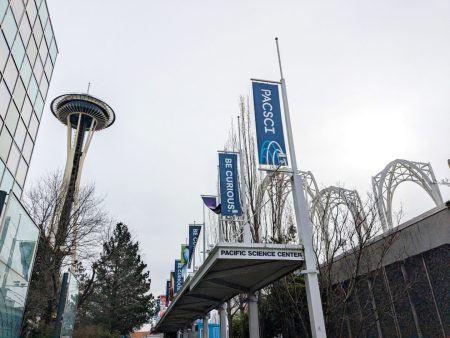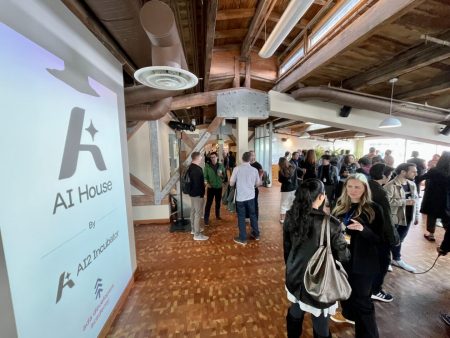Seattle’s B&O Tax Overhaul: A Delicate Balancing Act for Tech Companies
Seattle stands at a pivotal moment this November as voters consider a substantial transformation of the city’s business-and-occupation tax through the Seattle Shield initiative. The proposal aims to raise the B&O tax exemption threshold from $100,000 to $2 million, effectively eliminating this tax burden for small and medium-sized businesses with gross receipts under that threshold. However, to compensate for the resulting revenue gap, businesses earning above $2 million would face an increased tax rate—jumping from 0.427% to 0.65% for service businesses—applied only to revenue exceeding the new threshold. This restructuring represents a significant shift in how Seattle approaches business taxation, with Mayor Bruce Harrell and supporters framing it as both relief for smaller enterprises and protection for essential city services during uncertain economic times. The initiative comes amid Seattle’s struggle with a substantial budget shortfall projected over the next two years, with the proposed changes expected to generate approximately $81 million annually for human services and other critical city programs.
For Seattle’s vibrant tech ecosystem, the impact of this tax overhaul varies dramatically depending on a company’s development stage and revenue profile. Early-stage startups and smaller tech firms still finding their footing would experience immediate financial relief—potentially saving thousands of dollars annually that could be reinvested into growth, innovation, or hiring. For instance, a service-based company with $1 million in revenue currently pays $4,270 in B&O tax each year—an expense that would disappear entirely under the new structure. This represents a meaningful advantage for nascent companies navigating the already challenging startup landscape, particularly those operating with tight margins or pre-revenue business models focused on development and market penetration. The city estimates that approximately 90% of Seattle’s small and medium-sized businesses would pay less in B&O taxes if voters approve the measure, potentially creating a more hospitable environment for entrepreneurial ventures at their most vulnerable stages.
However, as tech companies scale and achieve higher revenue levels, the tax implications shift considerably. More established startups and tech corporations would face increased tax obligations—a reality that has sparked concern among some business advocates. The math is straightforward but significant: a company generating $100 million in annual revenue would owe an additional $213,920 in B&O tax under the new rate structure, representing a roughly 50% increase from current levels. Jacob Vigdor, professor of public policy and governance at the University of Washington, notes that this creates a specific transition challenge: “It’s as a business is transitioning to the 8-figure revenue level where the proposed tax system starts to bite.” This progressive approach attempts to shield smaller enterprises while asking more from companies with greater financial resources, but critics question whether it might ultimately discourage growth beyond certain thresholds or even incentivize relocation decisions for companies approaching or exceeding the $2 million mark.
The distinctive nature of tech business models adds another layer of complexity to the tax discussion. Kelly Fukai, CEO of the Washington Technology Industry Association, raises an important distinction: while the exemption appears beneficial, the B&O tax’s fundamental structure—applying to gross receipts rather than profits—remains problematic for many tech startups. “Startups do not have net income for years as there is heavy investment made upfront in development,” Fukai explains, highlighting how tech companies often operate with high revenue but slim or negative margins during extended growth phases. This reality means that even larger-revenue tech companies might still be in investment-heavy, pre-profitability stages when they begin facing higher tax rates. The disconnect between taxable revenue and actual financial health creates a particular challenge for the tech sector, where substantial funding rounds might temporarily inflate gross receipts without corresponding profitability, potentially subjecting growth-oriented companies to higher taxation during vulnerable expansion periods.
This tax proposal doesn’t exist in isolation but rather joins a growing constellation of business taxes in Seattle and Washington state. Earlier this year, Seattle voters approved a payroll tax on high earners designated for social housing, adding to the JumpStart payroll tax passed in 2020. This accumulation of tax obligations creates a complex calculus for companies considering their long-term presence in Seattle. Vladimir Dashkeev, an assistant professor of economics at Seattle University, suggests businesses may increasingly weigh whether to “reallocate resources—or even relocate to a different city with a friendlier tax climate.” However, Professor Vigdor counters that relocation decisions involve numerous factors beyond any single tax change: companies considering California face state income taxes, while those eyeing nearby Bellevue might encounter higher office rental costs given different vacancy rates. This multifaceted economic reality makes predictions about business behavior challenging, though the concentration of tax changes undeniably factors into strategic planning for tech companies with flexibility in their geographic footprint.
The debate around the Seattle Shield initiative reflects broader tensions about the city’s economic future and governance philosophy. Downtown Seattle Association President Jon Scholes has vocally opposed the measure, calling it “a boneheaded proposal of epic proportions” that risks “defunding its tax base” even while supporting the concept of exempting small businesses. Scholes warns that taxing larger companies more heavily “will ultimately result in Seattle defunding its tax base” and potentially shift tax burdens to residents as the commercial base erodes. Meanwhile, the Seattle Chamber’s Rachel Smith advocates funding the small business exemption through existing payroll tax funds or normal budgeting processes rather than increasing rates on larger businesses. Mayor Harrell has pushed back against these criticisms, emphasizing that “We’re not trying to run businesses out of Seattle. We are open for businesses.” This tension between supporting small business growth, maintaining essential services, and creating a sustainable tax environment encapsulates Seattle’s struggle to balance progressive values with economic pragmatism in an era of technological transformation and economic uncertainty. As November approaches, voters face a consequential decision that will shape not just the city’s tax policy but potentially its economic composition for years to come.















